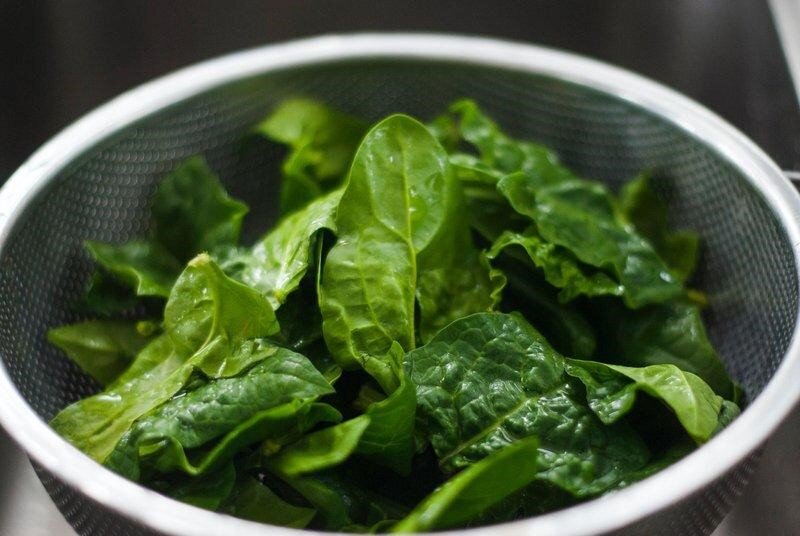The best foods to help with sleep and burnout
There are different forms of self-care you can bring into your routine to support your health in challenging times. One of those is increased and improved sleep. Did you know that one way to get a good night’s rest is to eat specific foods to help with sleep?
Clinical studies show that insufficient sleep is a direct predictor of burnout. Lacking sleep often means feeling sluggish and can make it difficult for people to function and concentrate. It can also lead to more worrisome long-term health consequences. This could include cardiovascular diseases and mental dysfunction. On a more positive note, putting good habits in place to get sufficient sleep could help prevent burnout and preserve your mental health. One of the less-known ways to support good, quality, lengthy sleep is through eating certain foods that contain powerful nutrients needed by your body and your brain to get a restful night.
Why certain foods help with sleep and burnout
The foods you ingest have a direct impact both on the duration and quality of sleep. This is because certain foods can trigger hormonal responses - in fact, both sleeping and waking patterns are influenced by chemical reactions as a result of what you put in your body. Therefore, a diet that is healthy and full of the right nutrients can have a positive impact on our brain wellness, and consequently, on whether or not you get a good night’s sleep. The right foods can also reduce stress.
Here are the best foods to help with sleep and burnout, curated by the HERdle.health team:
Almonds
Almonds contain the amino acid tryptophan, which is a building block of serotonin. Serotonin is a feel-good hormone believed to promote relaxation, trigger sleep, and facilitate deep sleep in particular. Serotonin also acts to get us out of bed in the morning with energy. Additionally, almonds contain melatonin, another hormone responsible for both sleep and wake cycles. Melatonin is boosted in a dark environment and specifically encourages the body to give into a more lethargic state in order to recover.
Just a handful of almonds can boost your magnesium and calcium intake, assisting further in relaxing your muscles’ nerves. Can you see why almonds are so high on our list of foods to help with sleep and burnout?
Photographer: Chiara Conti | Source: Unsplash
Leafy greens
Good examples of leafy greens include spinach, kale, broccoli, romaine lettuce and even beetroot. They contain magnesium, vitamin B and folate (folic aid). These minerals and vitamins are important because they can reduce depression and general fatigue on top of helping you get a good night’s sleep. Leafy greens are also full of antioxidants, good for reducing the risk of heart disease and cancer by neutralizing the negative effect of free radicals on the body. Leafy greens are truly nutrient-packed foods enabling you to fight burnout on different levels.
You can eat them in salads, of course, but also stir them into curries, or blend them into smoothies and juices.
Lean protein
Turkey is known to be rich in tryptophan, but other protein options include chicken or eggs. You could pair these lean proteins with leafy greens, of course, but also complex carbs. Carbohydrates act on tryptophan by making it more readily available to the brain. For the best complex carbs, focus on whole grains, for example, brown rice or quinoa. You can also try to have whole-wheat toast or oatmeal more often. Carbs to avoid include white bread or pasta.
Milk
Milk also contains tryptophan, producing serotonin and therefore encouraging the wellness state that makes us sleep faster and better. The calcium found in milk is also believed to reduce anxiety levels. There is no need to ingest milk in large quantities: a warm glass before bed is enough.
For those of you that avoid dairy for various reasons, you can opt for almond milk. Almond milk also contains tryptophan, generating serotonin, and the sleep-regulating hormone melatonin.
Yogurt
Similar to plain milk, yogurt contains calcium and tryptophan, so it promotes the production of serotonin and melatonin. Yogurt is also a powerful probiotic, which means that not only is it a great food to help with sleep and burnout, but it also supports a healthy gut.
Yogurt is a great alternative to sweet desserts, particularly because desserts contain a lot of refined sugar which can more quickly lead to burnout.
Oily fish
The types of “oily fish” you should prioritise are mackerel, sardines, tuna and certain types of salmon. Oily fish are packed with omega-3 fatty acids (anti-inflammatory fats) and Vitamin D. Omegas are known to increase serotonin, believed to reduce the time it takes you to fall asleep as well as improve the quality of your sleep. Omegas are also proven to reduce stress levels. In addition, Vitamin D is not just the “sunshine vitamin”: it is a key vitamin to make your nights more restful as it improves sleep efficiency. These paired properties place oily fish among our top foods to help with sleep and burnout.
Dark chocolate
Photographer: Daniel Fazio | Source: Unsplash
Got a sweet tooth? You may want to stay off refined sugar for a while, but it doesn’t mean you can’t have ANYTHING. Good quality dark chocolate contains magnesium and is also known to reduce stress levels.
Stick to small quantities to avoid taking in too much sugar (1 ½ ounces a day maximum will ensure you get the benefits and not the downsides).
Which foods should I avoid?
Doubling down on foods that support your health when you’re burnt out also means restricting or completely cutting out others from your routine:
Coffee
Coffee is a drink people typically reach out for the most when they feel exhausted - but coffee can contribute to keeping you up at night and worsen your burnout. In addition, drinking large amounts of coffee tempers with your body’s ability to absorb much-needed minerals found in other foods such as iron and magnesium.
Try to limit coffee (and teas containing caffeine) to once a day and do your best to stay off it after lunch.
Alcohol
Drinking alcohol might make you fall asleep quickly, but it also tends to wake you up in the key restorative stages of sleep and keeps you from getting deep restorative sleep. Alcohol also strongly affects mood, are likely to make the next day more difficult to manage, and causes havoc on your body’s natural balance. In the wrong circumstances, consuming alcohol regularly can contribute to depression.
Refined sugar and carbs
Sugar isn’t all bad - but refined sugar and carbs are best avoided, particularly when you are stressed: their consumption can deepen anxiety and increase the risk of feeling depressed. Refined sugars cause a spike in energy (and in your blood sugar) usually followed by a big slump. Remember refined sugars are found in sweets and cakes, but also in white bread or pasta.
Other habits to implement for better sleep
It is crucial to pair trying these foods to help with sleep with regular exercise. Other good practices to implement alongside a sleep-friendly diet include meditation or journaling (including audio journaling) to help you destress and wind down. Just remember to also avoid bright lights and screens at least a couple of hours before going to bed.
Have you tried to focus on certain foods to sleep better at night? Which ones worked best for you? We’d love to know.
Head over to www.herdle.health for more resources and tips to improve your general health.
Adele is the Content Strategist for HERdle.health, a digital women's health platform. HERdle aims to give a safe, trusted and non-judgy space for Indian women to access healthcare online, including mental health resources. By combating the massive social stigmas in India, HERdle gives Indian women power over their healthcare and life.







